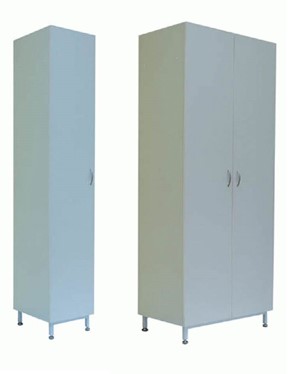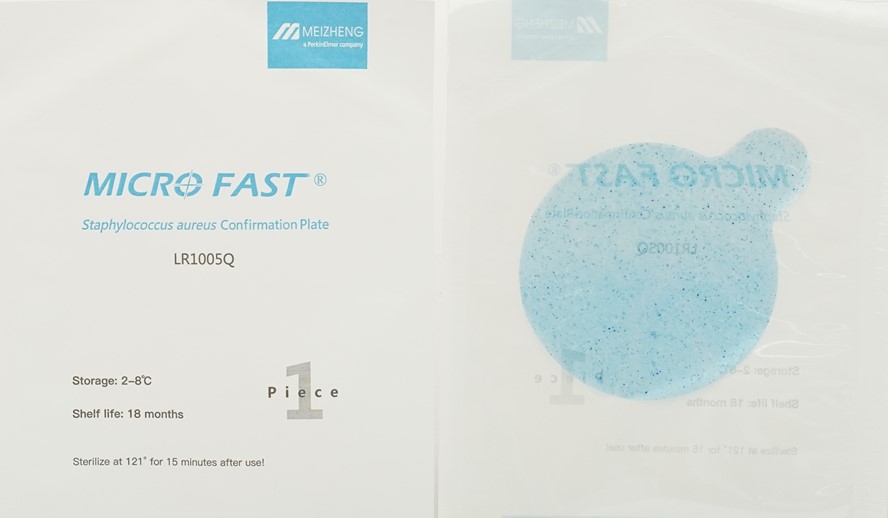Head of Delimobil - RBC: “A car in Russia is a luxury item”

About IPO
On Tuesday, January 23, Delimobil announced that it plans to hold an IPO on the Moscow Exchange at the end of January - the first half of February.
— As an actively growing business , we are considering all possible strategic development options and, in general, are technically ready to go public at any time: we see a growing consumption of car sharing services, from the point of view of corporate governance, we have expanded the board of directors to nine people, introduced three independent directors with experience in e-commerce, consumer market and technology, adopted a dividend policy. We consider both institutional and retail investors as potential buyers of securities. When placing a bond issue for 9 billion rubles. last year we saw good demand from individuals. I think, in addition to the attractive market and growing financial indicators, this is also explained by the fact that these investors themselves are users, for them this is an understandable business. In addition, there are cars that have value - this is probably more understandable compared to investing in some other assets.
As with the issue of bonds, the company intends to use the funds raised during the IPO for development. Elena Bekhtina did not comment on why the shareholders decided not to sell shares as part of the IPO, but noted that the entire top management “loves and believes in this business.”
What is "Delimobil"
Car sharing “Delimobil” was created in 2015 and now operates in ten cities. At the end of nine months of 2023, the company’s fleet amounted to 24.2 thousand vehicles. According to the consulting company B1, according to this indicator, the service is the largest car sharing in the world, as well as in RUSSIA (it occupied 40% of the market at the end of 2022). The company has 9.3 million registered customers. The revenue of the main legal entity - PJSC Carsharing Russia - according to the results of nine months of 2023 according to IFRS amounted to 14.5 billion rubles, EBITDA - 4.5 billion rubles, net profit - 1.4 billion rubles.
100% of Car Sharing Russia belongs to Delimobil Holding LLC, the owner of which, according to Rusprofile, is the Luxembourg Delimobil Holding SA. In 2021, several structures of Vincenzo Trani (in total owned 68.22%), Nevsky Property Finance ( 13.39%), co-founders Artem Sergeev (11.13%) and Arthur Melikyan (4.23%), as well as former CEO Stanislav Groshov (3.04%).
About the current state of the company
In 2020–2022, Delimobil’s revenue grew by an average of 56% per year, and EBITDA went from negative to positive. For the nine months of 2023, revenue grew by 31%, and EBITDA by 74%, the EBITDA margin was 31%. The net debt/EBITDA ratio is 3.5, the company's goal is to reduce it to 3.
RBC Pro development program Master 52 skills in a year The development program is a convenient tool for continuous learning new skills for a successful career What non-obvious reasons make you procrastinate Good connections: what styles can networking be divided into The leader who is not left: how to earn the loyalty of subordinates If you are tired , downshifting is not the answer. How to save your career How to memorize 30 pages at a time - advice from the Swedish Grand Master of Memory 9 ways to make meetings more productive - from simple to radical “Anti-time management”: how to learn to manage everything A manager doesn’t need to be very smart: the head of JPMorgan is about management Salvation top manager: 10 tricks for answering tricky questions Dictator's dictionary: what 6 phrases will give away an authoritarian manager What tricks of legendary scammers will be useful to you during negotiations Business coach Matt Abrahams: don’t try to speak “correctly”Elena Bekhtina (Photo: Mikhail Grebenshchikov / RBC)
— A separate reason for pride for me, as CEO, is that we have reached a stable net profit. This is important; not all existing technology businesses can boast of such results. Despite all the events that happened - covid in 2020, the semiconductor crisis in 2021, which led to a shortage of cars, the challenges of 2022 - we improved our performance every year.
Among the factors that made it possible to increase efficiency, Bekhtina named the development of its own IT systems and data analytics, which allows optimizing operating costs.
— The technologies we use help reduce potential risks. People drive our cars and there is a possibility of getting into an accident. Rating and scoring technology provides recommendations for each user on a safe driving style. In 2022, 40% of our clients improved their driving style, and overall the number of accidents decreased by approximately 20%. Naturally, this had a positive impact on our costs.
She noted that Delimobil has its own operational infrastructure: nine service stations in seven cities of presence. They make it possible to refuel cars and carry out maintenance more efficiently and at lower costs, said the head of the company.
In addition, over the past two years, Delimobil has reviewed its supply chains, including for spare parts. Expanded the EXPORT of analog spare parts from CHINA . There is also an effect of scale: the more cars a car sharing company has, the closer they are to each other - this attracts new users, “the logistics burden is reduced to take the car to a wash, refuel, etc.,” says Bekhtina.
About goals for 2024 and beyond
Delimobil’s strategy is designed for five years and involves both growth in the cities where it operates and new ones, the development of synergistic services (long-term rental, corporate car sharing, etc.), and increasing business efficiency. The company intends to further develop its own service stations and “in some future, move on to monetizing this infrastructure” - providing services based on it to corporate clients.
Delimobil plans to launch the service in three to five new cities per year and in the future expand its presence to all cities with a population of more than 500 thousand inhabitants. Bekhtina points out that there are 36 of these in Russia, with about 30 million people aged 18 to 64 living in them. Delimobil considers them its potential audience. As of May 2023, according to B1, there were 44 million people in Russia who had rights, and there were 1.7 million active car sharing clients. “Based on these data, we understand that car sharing can potentially increase the number of active clients tenfold.” ,” noted Bekhtina.
Elena Bekhtina (Photo: Mikhail Grebenshchikov / RBC)
At the same time, the entire mobility market, including taxis, scooters, etc., will grow to 1.6 trillion rubles by 2028, Bekhtina continues. At the end of 2023, the figure was 959 billion rubles. Of this, car sharing accounted for 44 billion rubles, and by 2028, according to B1’s forecast, the figure should increase more than five times, to 235 billion rubles. The total vehicle fleet will more than double. The share of carsharing in the total vehicle fleet is currently 0.1%, that is, even if carsharing grows significantly, the figure will still be low, the potential for development is huge, noted the head of Delimobil.
— Car sharing is a replacement for a personal car. Many who have a license are beginning to understand that a personal car in Russia at the moment is not a means of transportation, but a luxury item, because the cost of maintenance and purchase, especially if on credit , are becoming very expensive. B1 calculated the costs using the example of a Hyundai Solaris, the owner of which makes two trips on weekdays of a certain duration, and came to the conclusion that without taking into account parking fees, car sharing for the same trips will be three times more profitable than owning a personal car. And we understand that there has never been a single year when the cost of a car in Russia fell. I dream that people don’t think about buying personal cars, open our app and drive. In 2022–2023, everything has developed in the market so that, it seems to me, there will be rapid growth in car sharing.
Bekhtina points out that compared to personal cars, whose average age in Russia is 14 years, cars in car sharing are newer - 2.8 years. According to her, the current tariff line allows customers to use a car for trips to the country, shopping and leave it in the parking lot for several hours. She cites forecast B1, according to which the cost of travel is expected to increase due to their duration. “If previously car sharing was perceived mainly as an alternative to taxis, now it is not only short trips. People rent a car for the whole day so that when they leave the shopping center they can be sure that there will be somewhere to put their packages , or they go to the country. Due to the fact that we are represented in ten cities, there are those who travel by car sharing between them,” said Bekhtina.
At the same time, Elena Bekhtina does not believe that long-term rent neutralizes the benefits of carsharing as car sharing: “The idea of carsharing is to completely replace a personal car. Even if you rent a car for one or two months or longer, you have more flexibility compared to a personal car: you can replace it or return it at any time. For example, if you don’t like the model or need to go on vacation.”
About the fleet
In 2023, the Delimobil fleet, according to its head, increased by 7 thousand cars and exceeded 25 thousand. The company does not disclose how many they intend to introduce this year.
The basis of the fleet is those brands that could be purchased until 2022 and which subsequently left Russia. Chinese manufacturers account for about 25%. According to Bekhtina, Delimobil began negotiating with them about purchasing a car back in 2021. The company does not plan to replenish its fleet with European brands imported through parallel imports. But, for example, in 2023, Delimobil made a test purchase of Jetta cars, a joint venture between the Chinese manufacturer and Volkswagen.
Elena Bekhtina (Photo: Mikhail Grebenshchikov / RBC)
— There are no problems with servicing [cars of brands that left Russia]. We repair these machines ourselves, we know how to do it efficiently and effectively, and we have established a supply of spare parts. Of course, there are no problems with servicing the Chinese manufacturers that we now purchase. According to our business model, the fleet lasts six to seven years, after which we sell it. We do not expect that the remaining vehicles will last less.
Chinese automakers are in high demand among customers, she said. Three models that appeared in 2023 have already entered the top 10 most popular among Delimobil users. Bekhtina called Chinese cars “more modern” compared to European brands.
In early January, during a period of severe frosts, the media wrote about problems with the operation of Chinese car batteries. Elena Bekhtina says that Delimobil has never encountered anything like this.
- Any car, any battery in frost minus 35 is highly likely to fail. We use the car factory algorithm - a special system that is connected to Gismeteo and monitors the temperature in each location in real time. Based on a certain temperature, it remotely turns on the car to warm up the battery: the lower, the more often. The system works effectively on both Chinese and European cars. This is a matter of adapting business to extreme conditions.
According to Bekhtina, in recent years the company has learned to work with all the hypothetical risks that are inherent in car sharing as an industry: a shortage of cars, problems with maintenance, problems associated with IT systems, etc. “Delimobil” “almost completely solved the problems with geolocation (in the second half of 2022, users of services with geolocation encountered problems in determining location due to GPS interference, which was associated with the operation of anti-drone systems. -).”
— We use data from cellular base stations, and with the help of artificial intelligence, we complete the points where our cars are located in real time. In addition to this, the application displays photos from previous users where the car was left so that the new user can navigate the area. We also did a search by car number, which allows you to book a car that the client sees on the street, but which is not displayed on the map.
About tariffs for users
According to B1, car sharing is 35% cheaper than a taxi. Previously, experts explained the increase in the cost of taxis in Russia, including the increase in car prices. For car sharing tariffs, according to Bekhtina, there is no such dependence.
Elena Bekhtina (Photo: Mikhail Grebenshchikov / RBC)
— If you look at our historical data, we did not have a head-on increase in tariffs. We are adding various new use cases. Our goal is to increase the availability of our cars. Our dynamic pricing tracks supply and demand at every location, and where demand is high and supply is low, the price rises. In other locations it's the other way around. Recently we launched a tariff that allows for 79 rubles. take a car and drive to a convenient public transport stop. This is beneficial for customers and the company - we move cars to those points where there will be high demand, but supply is still small.
She also pointed out that the rise in taxi costs is greatly influenced by the shortage of drivers, and this factor does not apply to car sharing. “Car sharing is primarily a replacement for a personal car. The cost of purchasing a personal car will dramatically increase this market in the future. Our business model is not negatively affected by rising prices for cars because we lease them on finance. After its completion, the cars become our property, and when their service life in the fleet ends, we sell them. That is, if the cost of a car has increased, we sell it at a higher price,” explained the general DIRECTOR of Delimobil.
About car sharing regulation
Now some cities, for example Moscow , Tula, Kazan, under certain conditions offer preferential parking passes for car sharing services. In Moscow this is a 90 percent discount. According to Bekhtina, they are discussing the introduction of a similar benefit with the authorities of other cities where the service is present.
— Car sharing is an integral part of the city’s transport ecosystem. It relieves traffic flow, increases the efficiency of parking spaces, and has a positive effect on the environment, because we have newer cars that meet environmental standards. We respect the position of the authorities of those cities where we do not yet have parking benefits - we understand that this is a relatively new service, the authorities need to understand how it helps the city.
Elena Bekhtina (Photo: Mikhail Grebenshchikov / RBC)
In June 2023, Russian President Vladimir Putin instructed the government to study the issue of using Russian cars for taxis and car sharing. According to Elena Bekhtina, the majority of cars in the Delimobil fleet are now those that were produced in Russia, in particular, Volkswagen cars, which the company purchased several years ago.
— We are interested in growing our vehicle fleet using vehicles produced in Russia. But if we talk specifically about Russian brands, then there are few of them. But we also purchase, test and study them.





























































